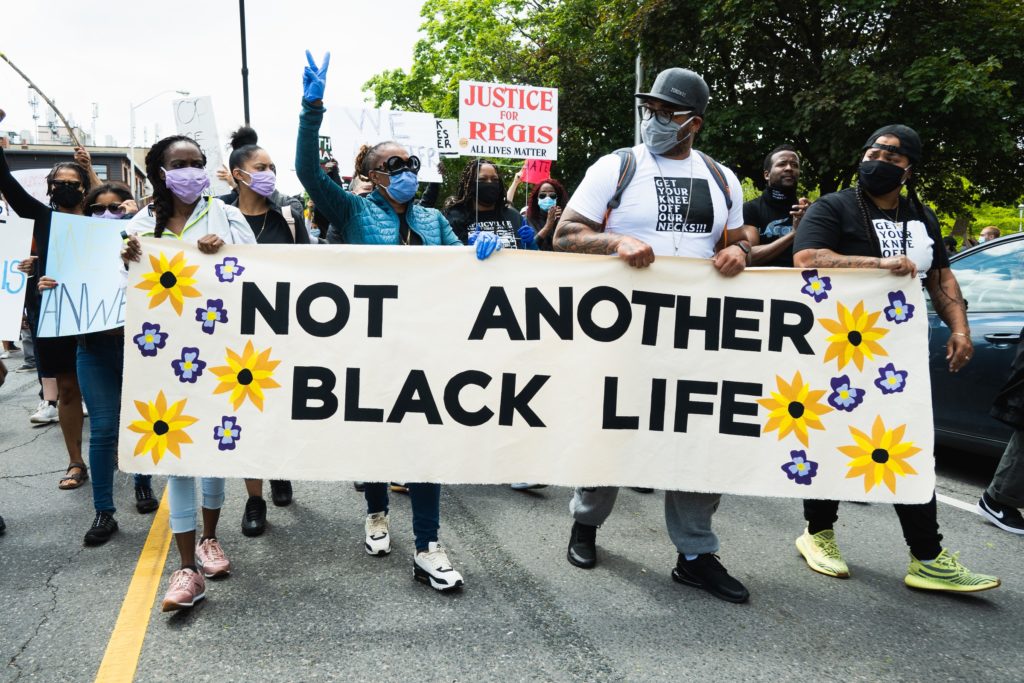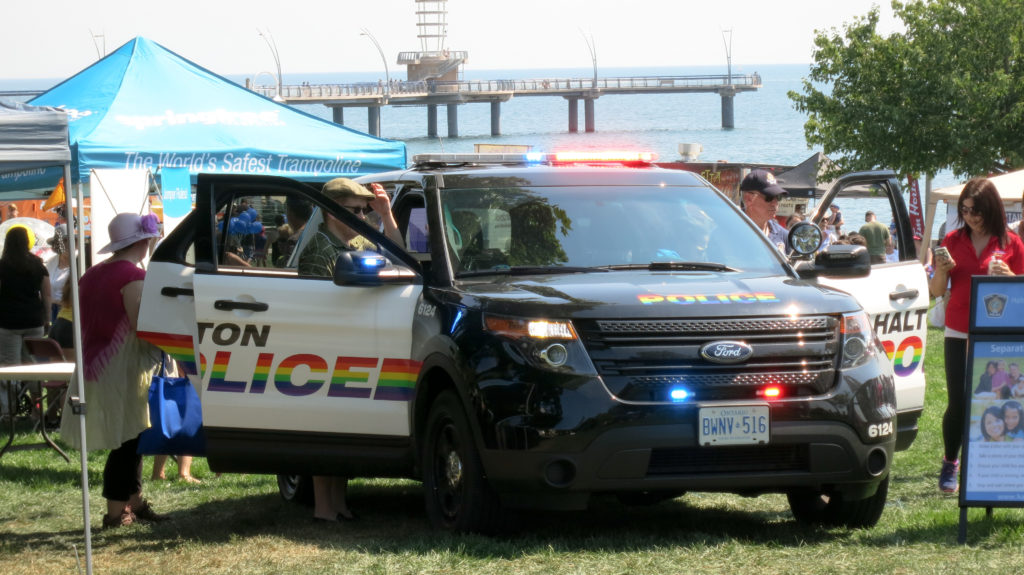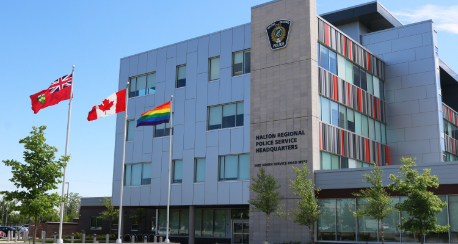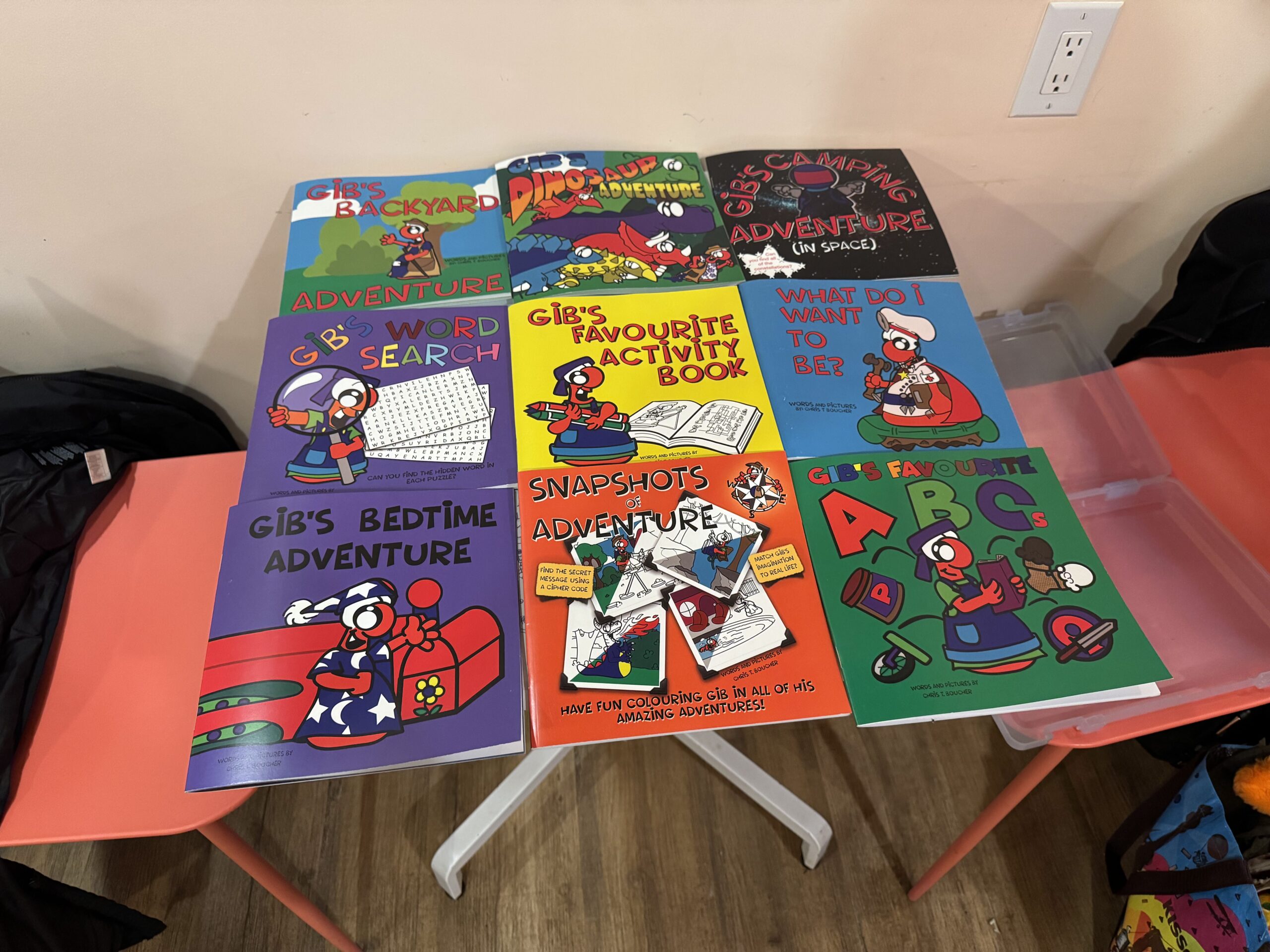After a tumultuous year of parades, protests, and public demonstrations across the globe, which in many instances saw tensions explode between police and participants, the Halton Regional Police Service (HRPS) is setting the standard by working to establish updated training and protocols through a new internal unit.
The HRPS’s Equity, Diversity and Inclusion (EDI) Unit, introduced at the Police Board’s May 2021 meeting, is the newest mechanism through which members of the department are demonstrating what sets their reputation above other law enforcement agencies.
The EDI unit is Halton’s answer to the shifting attitudes and opinions about policing brought on by the global controversies of the past year, particularly those stemming from the backlash against heavy-handed law enforcement practices in the United States.
This unit aims to foster an inclusive workplace, supporting officers through internal health and wellness programs, increasing opportunities for professional development and building healthy outreach within the local community through educational initiative and collaboration with consultants.
Halton Regional Police stood in vocal support of the Black Lives Matter solidarity marches hosted in Burlington and Oakville after the murder of George Floyd by police in the United States last summer. Chief of Police Stephen Tanner issued a statement at the time encouraging people to “exercise their lawful right to demonstrate peacefully,” going on to say that “we have a collective role to play in ensuring all people are treated with dignity.”

Building and maintaining public confidence in a time when trust in authority is at an all-time low is a daunting challenge, one many police services are struggling with as tensions continue to flare over ongoing issues, but it also represents an opportunity that Sgt. Ryan Smith relishes. As head of the unit, he is at the forefront of the training, development, and policy decisions that will shape the way officers interact with the public while performing their duties in future.
“I think that good communication is the driver of success,” he says. “What I mean is ensuring that our members are aware of why we have developed a particular program or initiative and how it will ultimately benefit them, the Police Service, and the community we serve.”
His organization’s commitment to transparent communication extends beyond an internal reach as the unit actively engages with their Diversity Engagement Table (DET), an assembly of almost thirty community organizations, including the Canadian Caribbean Association of Halton and the Halton Region Chinese Canadian Association. The DET assists in developing initiatives and programs that provide informed training for officers interacting with marginalized groups, and helps to forge bonds between the institution and the public.

Another key delegation among the DET is the Halton Black History Awareness Society, and the society’s chair, Dennis Scott, is enormously proud of the work the groups have been able to accomplish in cooperation with each other. “I’m quite thrilled to be a part of that,” he says. “We are recognized as number one in Canada for diversity within the operation, diversity training, and de-escalation training. We’re also number one in mental health training, for which we’ve been awarded internationally.”
According to Your Community, Our Service, the HRPS board takes great pride in its recognition as the safest large municipality in all of Canada, but Halton Region faces the same socio-political conflicts as the nation and the world — namely the struggle for equity in the face of prejudice.
The Greater Toronto-Hamilton Area has seen the same uptick in hate crimes over the past year targeting visible minorities, particularly Black and Asian residents, that other major metropolitan areas have seen globally. Halton Region is no exception.
In a report from February, Chief Tanner said “the number of reported hate-related incidents rose by 160% in 2020” with 66 instances, including 18 that met the criteria of hate crimes; 11 of these resulted in charges of assault laid against suspects.
Those 66 reports stand in stark contrast to the 25 total reports from the year prior. It is a startling figure for a region that prides itself on having the lowest overall crime rate nationwide, and clearly one that the police board is rightly concerned about.
Forced to deal with the growth of hate and the volatile rhetoric surrounding issues ranging from racial justice to vaccine conspiracies, all of which has provided fertile ground for bigotry to flourish in isolation, the HRPS understands that the statistics call for timely, calculated action.
Scott, when asked whether the figures had him worried, responded in the affirmative. “Oh, absolutely.” Despite that worry, he remains adamant that the best way to combat hatred and racism is the same way he has advocated for years.
How? By training and supporting educators in presenting history accurately and without bias, and consistently developing progressive community relations. “Our focus is on getting cultural history into the education system, which we feel would alleviate growing hate crime, prejudice, racism, everything.”
If the way forward is indeed to stay the course, weather the storm, and keep heads held high, then the EDI Unit and the work they are accomplishing stands to be a powerful force for the community as Halton faces hatred on its own terms.
Sources
Halton Region Police Services. n.d. Your Community, Our Service. Url: https://www.haltonpolice.ca/en/about-us/resources/Documents/YourCommunityOurService.pdf (accessed July 15, 2021).
Tanner, S. 2021. Public Agenda, Feb 25 2021: 2020 Hate Related Occurrence Summary. Halton Police Board. Url: https://www.haltonpoliceboard.ca/meetings/docs/2021/Feb/Public_Agenda_Feb_25_2021.pdf (accessed July 24, 2021).




